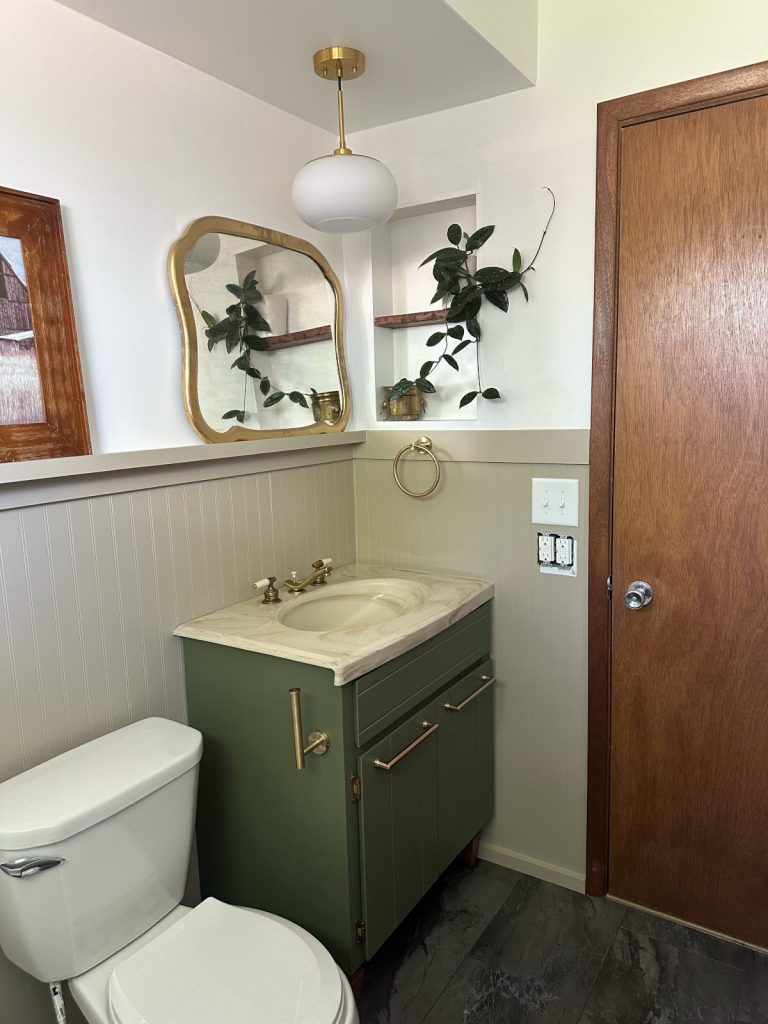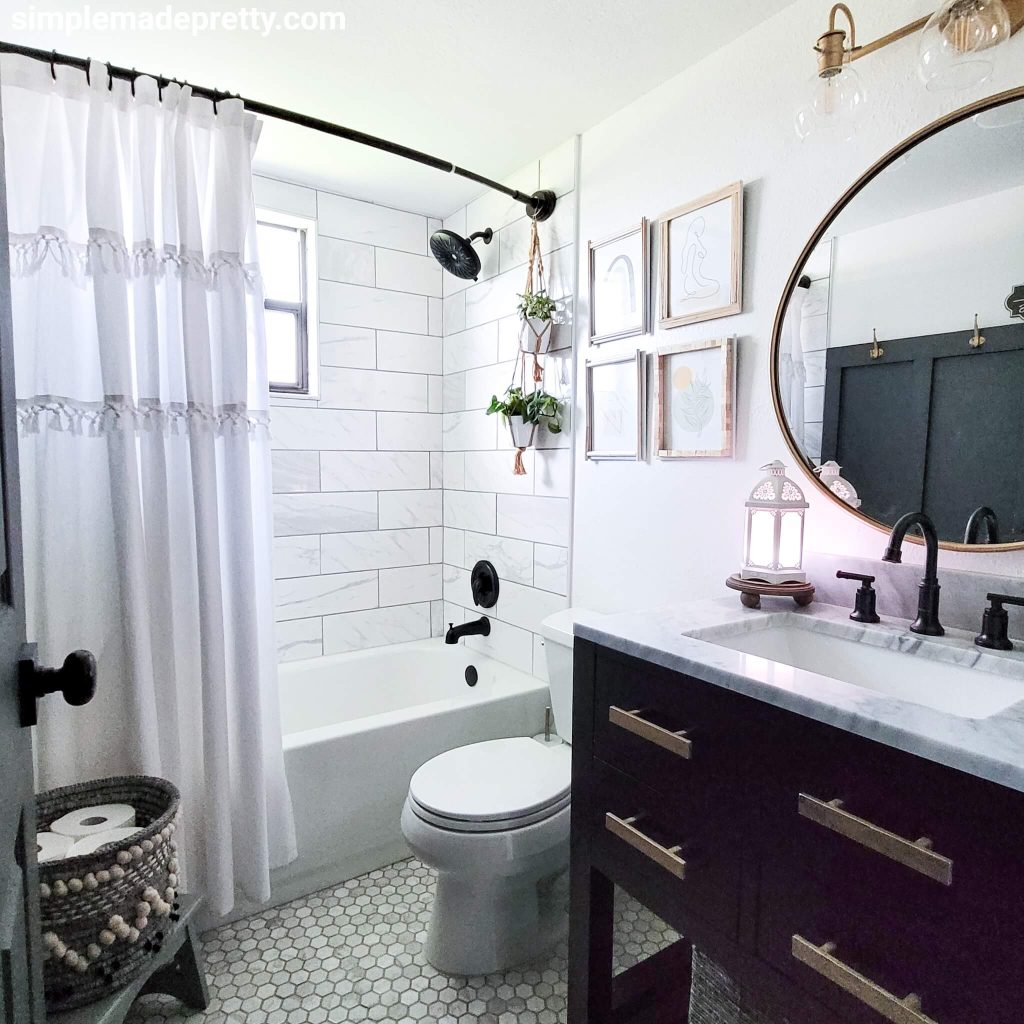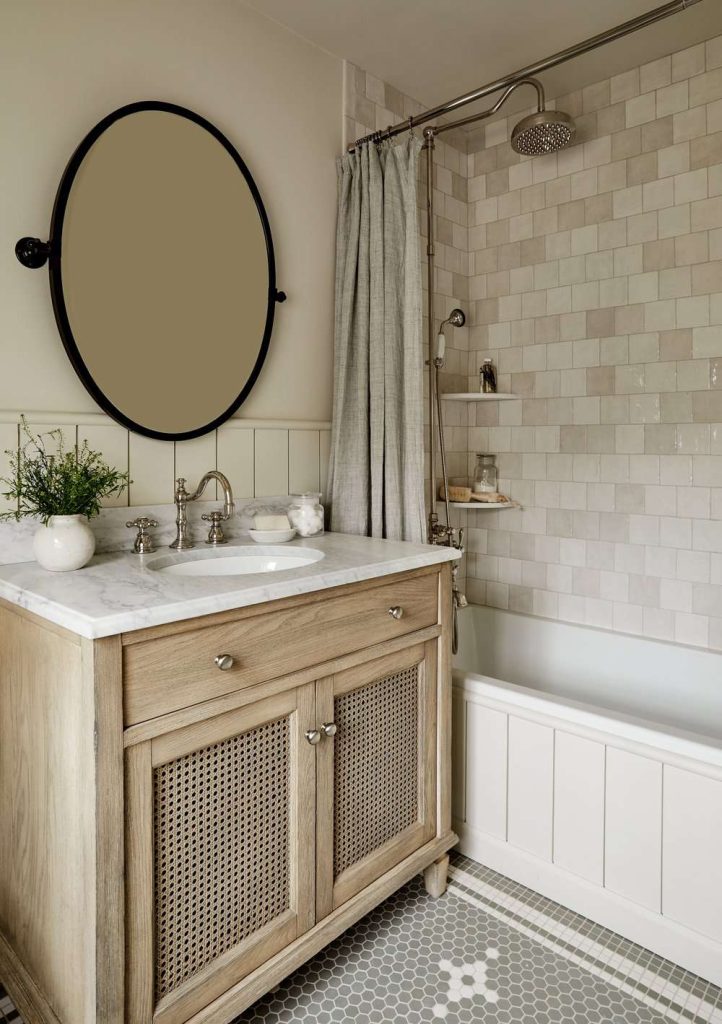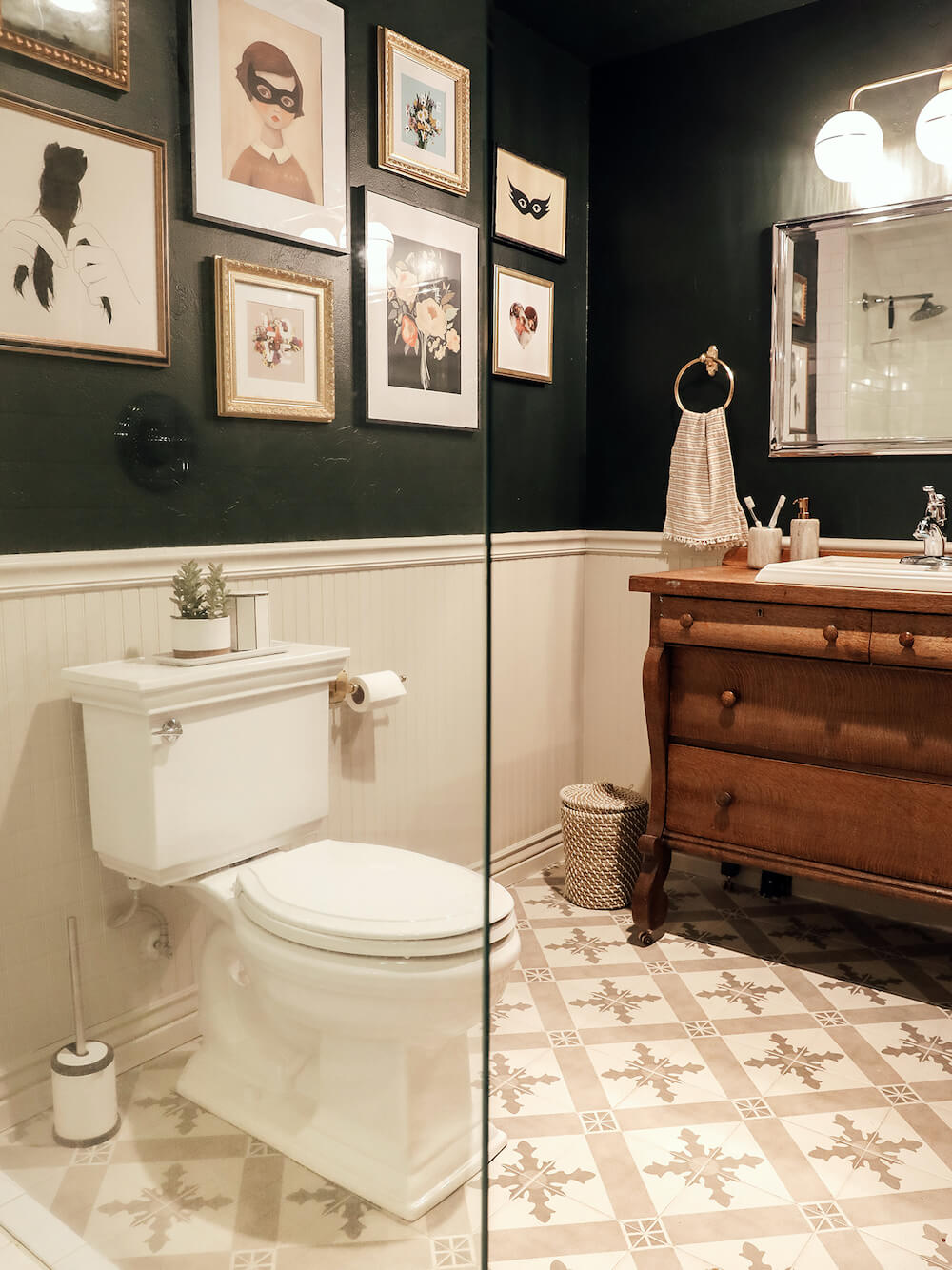Pros and Cons of DIY Bathroom Remodeling Lewisburg
Embarking on a bathroom remodeling project is an exciting opportunity to transform one of the most frequently used spaces in your home. Many homeowners consider tackling the project themselves to save money and personalize the space. However, DIY bathroom remodeling comes with its own set of advantages and challenges. This article explores the pros and cons of DIY bathroom remodeling to help you determine whether it’s the right choice for your project. What should you expect if you take on a bathroom remodel yourself?
1. The Appeal of DIY Bathroom Remodeling
A. Cost Savings
- Labor Costs: One of the most significant advantages of DIY remodeling is the potential for cost savings. By handling the work yourself, you eliminate labor costs associated with hiring professionals, which can be substantial. In essence, you can almost immediately cut the cost Almost in Half by doing all of the work yourself.
- Material Costs: You may also save money by sourcing materials yourself, finding deals, and avoiding markups that contractors charge. You will choose, source, purchase, and handle all the material yourself, making it only the cost of what you choose and your own time.
B. Personal Satisfaction
- Creative Control: DIY remodeling allows you to exercise complete creative control over the project. You can make decisions based on your personal style, preferences, and needs without compromise. Your design, your plan, your installation, your project. You do not have to coordinate with anyone, all the work is taken care of by you.
- Sense of Accomplishment: Completing a remodeling project on your own provides a sense of achievement and pride. Seeing the finished product and knowing you did it yourself can be highly rewarding.
C. Flexibility and Customization
- Work at Your Own Pace: DIY remodeling allows you to work on your own schedule. You can complete tasks as time permits, without the pressure of adhering to a contractor’s timeline.
- Tailored Design: You have the freedom to customize every aspect of the remodel to suit your tastes. From choosing materials to selecting fixtures, the project becomes a true reflection of your vision.

2. The Challenges of DIY Bathroom Remodeling
A. Time Commitment
- Extended Timeline: DIY projects often take longer than professional remodels. Balancing the remodel with other responsibilities can lead to extended timelines, especially if you’re working on weekends or evenings. Many families have an unfinished project that can span as long as 1,2,5, and even 10 years!
- Learning Curve: If you’re new to remodeling, there’s a learning curve involved. Gaining the necessary skills and knowledge to complete tasks correctly can add to the overall time commitment. It might cost over $2000 to acquire all the tools necessary to a bathroom remodel if you have little or no tools.
B. Potential for Mistakes
- Quality of Work: Without professional expertise, there’s a risk of subpar workmanship. Mistakes in areas like tiling, plumbing, or electrical work can affect the overall quality and functionality of the remodel. It would be fair to say that even a very detailed person will be able to produce a product 60%-80% of the quality of a professional remodeling company.
- Cost of Corrections: Errors made during DIY remodeling can lead to additional costs for repairs or rework. Correcting mistakes may require professional help, potentially offsetting any initial savings. Costs accrued due to mistakes will add up quickly, and may cause the project to be more costly than hiring a professional.
C. Limited Expertise and Tools
- Specialized Skills: Certain aspects of bathroom remodeling, such as plumbing and electrical work, require specialized skills and knowledge. DIY enthusiasts may lack the expertise needed for these complex tasks.
- Tools and Equipment: Professional remodelers have access to specialized tools and equipment that may not be readily available to DIYers. Investing in or renting these tools can add to the cost and complexity of the project. Again, it may not be worth it to acquire all of the tools necessary for a bathroom remodel if you only plan on completing one project in the near future.
D. Risk of Non-Compliance
- Building Codes and Permits: DIY remodelers may inadvertently violate building codes or fail to obtain necessary permits. Non-compliance can lead to legal issues, fines, or complications when selling the home.
- Inspection Challenges: Some areas of the remodel, particularly plumbing and electrical work, may require inspections. Ensuring that all work meets code requirements can be challenging without professional guidance. Ultimately, these things are up to your discretion as the homeowner, but can be dangerous if electrical and plumbing are done improperly.

3. Pros and Cons Breakdown
A. Cost Savings
- Pros: Eliminating labor costs and finding materials on sale can lead to significant savings. DIY projects allow you to stay within budget and allocate funds to other aspects of the remodel. YOU WILL SAVE MONEY IF YOU DO IT YOURSELF, as much as 30-70% DEPENDING ON THE QUALITY OF MATERIALS YOU CHOOSE.
- Cons: Mistakes and errors can result in additional costs for repairs and corrections. Professional help may be needed to fix issues, potentially diminishing initial savings. YOU WILL MAKE MISTAKES, AND WILL LIKELY SPEND MORE THAN YOU ANTICIPATE, EVEN AS A DIY REMODELER.
B. Personal Satisfaction
- Pros: Successfully completing a remodel on your own provides a deep sense of accomplishment and personal pride. You have the satisfaction of creating a space that is uniquely yours.
- Cons: The stress and challenges of handling the project yourself can sometimes overshadow the satisfaction. Balancing the remodel with other responsibilities can be overwhelming. If you work full time and have a family and a busy life, you likely will not enjoy the project much, and it will complicate other areas of your life.
C. Flexibility and Customization
- Pros: DIY remodeling allows you to work at your own pace and make design choices based on your preferences. You have the flexibility to adapt the project as needed and achieve a personalized result. Essentially, you can change your mind in the middle with no added cost or ramifications with your remodeler.
- Cons: The extended timeline and potential for mistakes can impact the overall experience. Customization may be limited by your skills and available resources, such as Luxury Vinyl Plank instead of Porcelain tile for the flooring.
D. Time Commitment
- Pros: Working on the project according to your own schedule provides flexibility. You can manage the remodel alongside other responsibilities and avoid the pressure of a contractor’s timeline.
- Cons: The remodel may take longer to complete compared to professional work. Delays can occur if you encounter challenges or need additional time to learn new skills.
E. Potential for Mistakes
- Pros: Learning from mistakes and gaining new skills can be a valuable experience. Some minor errors can be corrected without significant impact on the overall project.
- Cons: Mistakes can lead to additional costs and complications. Professional-quality work may be difficult to achieve without prior experience and expertise.
F. Limited Expertise and Tools
- Pros: Taking on the project yourself allows you to develop new skills and gain hands-on experience. You have the freedom to explore and experiment with different techniques.
- Cons: Specialized skills and tools may be necessary for certain tasks. Investing in or renting tools and acquiring expertise can add to the complexity and cost of the remodel.
G. Risk of Non-Compliance
- Pros: Avoiding professional fees for permits and inspections may reduce costs. You have control over the process and can ensure that the work aligns with your vision.
- Cons: Failing to meet building codes or obtain necessary permits can lead to legal and financial issues. Professional guidance can help ensure compliance and avoid potential problems.
4. Tips for Successful DIY Bathroom Remodeling
A. Plan Thoroughly
- Detailed Design: Create a detailed design plan, including layout, materials, and fixtures. A well-thought-out plan helps guide the project and minimizes the risk of errors.
- Budgeting: Establish a realistic budget that includes materials, tools, and potential contingencies. Allocate funds for unexpected expenses to avoid overspending.
B. Research and Preparation
- Learn Skills: Take the time to learn essential remodeling skills through online tutorials, classes, or workshops. Familiarize yourself with the techniques and tools needed for the project.
- Gather Tools: Ensure you have all the necessary tools and equipment before starting the remodel. Investing in quality tools can improve the outcome and efficiency of your work.
C. Seek Professional Advice
- Consult Experts: Consult professionals for advice on complex tasks, such as plumbing and electrical work. They can provide guidance, answer questions, and help you avoid common pitfalls.
- Get Permits: Research local building codes and permit requirements. Ensure that you obtain all necessary permits and comply with regulations to avoid legal issues.
D. Take Your Time
- Work at Your Own Pace: Avoid rushing the project. Take your time to complete each task thoroughly and accurately. Quality work often requires patience and attention to detail.
- Address Issues Promptly: If you encounter challenges or mistakes, address them promptly. Correcting issues early can prevent them from impacting the overall project.
E. Know When to Call for Help
- Recognize Limits: Understand your limitations and recognize when a task requires professional expertise. Hiring a professional for complex or critical tasks can ensure quality and prevent costly mistakes.
- Professional Services: If needed, hire professionals for specific aspects of the remodel, such as plumbing, electrical work, or tile installation. This can help achieve a high-quality result while still saving on overall costs.

5. Conclusion
DIY bathroom remodeling offers the potential for cost savings, personal satisfaction, and creative control. However, it also presents challenges, including time commitments, potential mistakes, and limitations in expertise and tools. Understanding the pros and cons can help you make an informed decision about whether to tackle the project yourself or hire professionals.
A successful DIY bathroom remodel requires careful planning, preparation, and a willingness to learn and adapt. By considering the advantages and challenges, you can determine whether DIY remodeling aligns with your goals and capabilities. Whether you choose to take on the project yourself or seek professional help, the key is to approach the remodel with a clear plan and realistic expectations.
If you’re considering a DIY bathroom remodel, start by creating a detailed plan and researching the skills and tools you’ll need. Take the time to learn and prepare, and don’t hesitate to seek professional advice when needed. With the right approach, you can achieve a successful remodel that enhances both the functionality and aesthetics of your bathroom.
DIY bathroom remodeling can be a fulfilling endeavor, offering the chance to personalize your space and save on costs. By weighing the pros and cons and preparing thoroughly, you can navigate the project effectively and create a bathroom that meets your needs and reflects your style.
If you decide A DIY Bathroom Remodel is outside of your skill-set, time limit, or interest, schedule a phone consult with Doxa Custom Homes and Remodels to help you with your bathroom remodel and build your dream for you.
https://calendly.com/doxacontracting/project-phone-consultation

